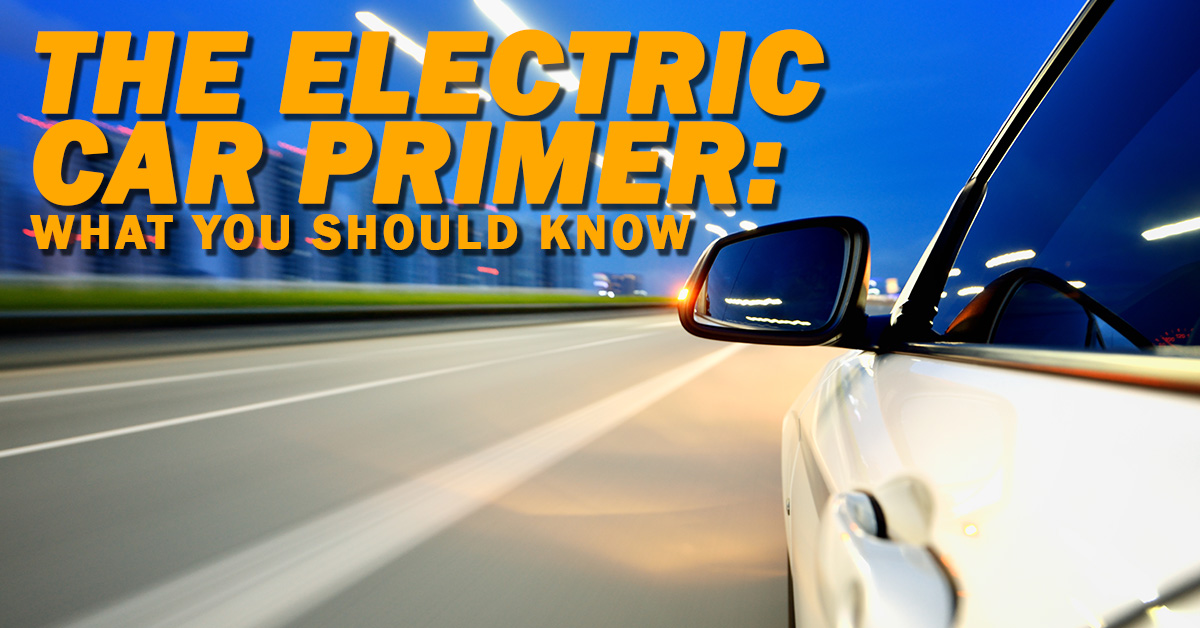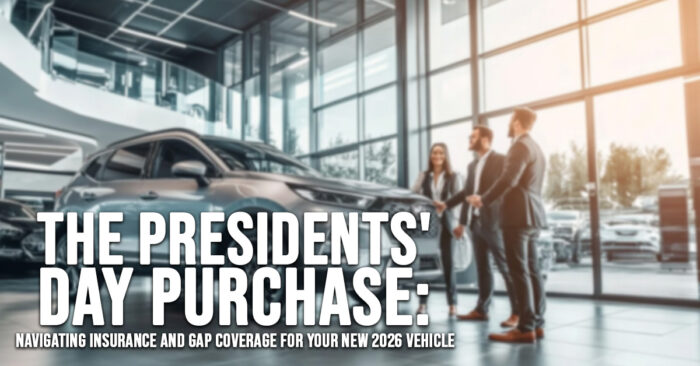The Electric Car Primer: What You Should Know

The Electric Car Primer: What You Should Know
Electric vehicles are making an impact. While only about 3% of new cars being sold are electric, that number is growing. More manufacturers are making a commitment to electric vehicles, and more consumers have these alternative fuel vehicles on their radar.
Here are some basics you should know before ditching your combustion-powered car.
Alphabet Soup
There are various types of electric cars. EV is the overall term given to cars that use electricity. A BEV is a battery-powered electric vehicle with only battery-powered electric motors. A hybrid electric vehicle is an HEV that combines both electric and combustion motors. They often use regenerative braking to generate energy when stopping that is stored in batteries. Finally, a PHEV is a plug-in hybrid that uses its combustion engine when the electric battery depletes.
Driving Range
One of the developments fueling the growing popularity of EVs is advances in batteries. It is common for today’s EVs to get from 299 to 499 miles before needing to charge. Use of heat and air conditioning can reduce the range of an EV.
Charging an EV
EVs can be charged at home or at charging stations throughout the country. Online resources can help you locate public charging stations. There are three basic charger types to recharge an EV. A Level 1 charger uses a normal three-prong plug that can be plugged in at home. These tend to be slow and seldom used. You may just get a few miles out of an hour of charging. Level 2 charges use 240 volt external adapters and household dryer type plugs.
Level 2 chargers can generally provide 20 to 30 miles of range per hour of charging time. Level 3 chargers, or DC Fast chargers, offer the fastest charging times, getting about 100 miles of range in about a half-hour of charging time.
Keep in mind that battery life is critical in a decision to buy an EV. Like your cellphone, your car will eventually need a new battery, and that can be an expensive proposition. This leads to a greater depreciation for EVs than for combustion-engine cars but also makes used EVs cheaper to buy.
If you have or are considering an EV, we can help you insure it. Contact one of our independent insurance agents for a free quote. Vehicles are changing and we can make sure your car insurance keeps up. Contact us today.
Do you have questions about your insurance? Find an insurance agent near you with our Agent Finder
Search All Blogs
Search All Blogs
Read More Blogs
Spring Dreams, Winter Schemes: Updating Your Insurance Before Your Spring Renovation
Planning a Spring kitchen remodel? Learn why you need to call your insurance agent before the contractors arrive to ensure your project is covered.
Shadow or Spring? The Quirky Science and Folklore of Groundhog Day 2026
Will he see his shadow? Dive into the history and humor of Groundhog Day 2026 and why we still trust a rodent with our weather forecasts.
Stocked for Love: Protecting High-Value Valentine’s Inventory with Business Insurance
Is your Valentine’s stock protected? Ensure your business insurance accounts for the massive inventory surge happening in early February.
New Life, New Responsibility: Why a February Arrival Means Updating Your Policy
Welcoming a new family member this February? It’s time to move life insurance to the top of your to-do list to ensure your child’s future is secure.
Delivering Love: The Insurance Risks of Valentine’s Week Gig Work
Delivering flowers or chocolates for extra cash this Valentine’s? Make sure your car is actually insured for delivery work before you hit the road.
Tax Prep & Protection: Ensuring Your Home Office is Fully Insured for 2026
Prepping your taxes? Don’t forget to check your home office insurance. Your standard policy might not cover your professional gear or liability.
More Than Just a Sale: The Fascinating Evolution of Presidents’ Day
Why is Presidents’ Day on a Monday? Explore the history, the politics, and the trivia behind our mid-February celebration of national leadership.
The Presidents’ Day Shutdown: Managing Risk During Holiday Closures and Sales
Closed for the holiday or open for a sale? A business guide to managing liability, employee pay, and property security during Presidents’ Day weekend.
A Presidential Legacy: Using Life Insurance to Fund Your Charitable Vision
What will your legacy be? Learn how to use life insurance to make a significant charitable impact this Presidents’ Day without depleting your current savings.
The Presidents’ Day Purchase: Navigating Insurance and Gap Coverage for Your New 2026 Vehicle
Buying a new car this Presidents’ Day? Make sure your insurance keeps up. Essential tips on Gap coverage and new vehicle replacement riders.









